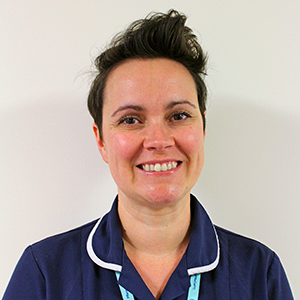We connect with those working at the forefront of health and care to encourage innovation from within the system. We help health and care practitioners to identify the challenges they are facing and match them with a solution to address their challenge and meet local system priorities.
Access to proven innovations: improving patient care and enabling efficiencies.
We can help identify and implement the best innovations in health and care. We can help you focus on evidence backed programmes to meet the needs of your patients.
We deliver the roll out of nationally driven programmes, including patient safety programmes, healthcare inequalities initiatives and innovations selected by NHS England as part of the MedTech Funding Mandate. We are a trusted partner to the NHS and as the innovation arm of the NHS in the East of England and we can support you to adopt and spread proven innovations and help deliver a lasting legacy for health and care across our region.
Help us understand the challenges you’re facing in health and care so that we can match your problems with the right solution : Let us know.
Clinical entrepreneurs
We also know that a great ideas can take many forms and some of the best ideas come from those who are working directly in health and care:
- It can be an innovative new product or way of working
- It can be a process used consistently
- It can involve using an existing product in a new way
- It can be a group or a network
- It can be taking something that works elsewhere and introducing it somewhere new
- It is often a combination of all the above
As we live in the largest life sciences cluster in Europe and have brilliant health and care practitioners, we also want our community to benefit from both creating better health outcomes and more prosperity by enabling clinical teams to share their views with innovators and vice versa.
As the innovation arm of the NHS in the East of England, we have proven experience accelerating and driving innovations to scale within the NHS, find out more about our consultancy and advisory work here.
We encourage partners and stakeholders to work together to support clinical entrepreneurs with ideas to transform health and care. If you have an idea, please check our page for innovators to find out how we can support you.
Patient safety
Innovation should never come at the price of patient safety.
At Health Innovation East we host the East of England Patient Safety Collaborative (PSC), which is tasked with embedding the National Patient Safety Improvement Programmes across the region.
Our patient safety team is funded by NHS England’s National Patient Safety Team to play a critical role in identifying and spreading safer care initiatives across our region.
We do this by working across a variety of healthcare settings to quickly share and spread evidence-based practices, products and tools.
We are focused on the following national priority areas:
Maternity and Neonatal
Maternity and Neonatal
Our Maternity and Neonatal programme aims to improve the optimisation and stabilisation of the preterm infant and improve the prevention of, identification of, escalation of, and response (PIER) to maternal and neonatal deterioration – with objectives aligned to the three-year Maternity and Neonatal Plan.
Under the Maternity and Neonatal umbrella, we are also supporting the Perinatal Culture and Leadership Programme. The programme seeks to improve quality of care by enabling a better understanding of the relationship between leadership, safety improvement and safety culture. It also supports perinatal leadership teams to create the conditions for a positive culture of continuous improvement, enabling a more psychologically safe, collaborative and supportive workplace.
Medicines Safety
Medicines Safety
Our Medicines Safety Improvement Programme aims to improve opioid stewardship by reducing the number of non–cancer patients prescribed this type of medication. Our work includes strengthening relationships across systems with a view to supporting alternative approaches to pain management, whereby patients are offered an alternative to opioids to support them to live well with pain.
Systems Safety
Systems Safety
The aim of this programme is to create optimal conditions for patient safety and quality improvement by supporting the implementation of the Patient Safety Incident Response Framework (PSIRF) in healthcare settings serving NHS patients – via collaboration and networking between system partners and providers to deliver the national patient safety improvement priorities.
Martha’s Rule and Managing Deterioration
Martha’s Rule and Managing Deterioration
The aim of this programme is to reduce deterioration-associated harm by improving the prevention, identification, escalation and response to physical deterioration, through better system co-ordination and as part of safe and reliable pathways of care by 2027.
There are two elements to this programme, the introduction of Martha’s Rule and working with systems to use the PIER improvement toolkit to design and implement a managing deterioration improvement plan.

Good ideas, combined with the right direction and a culture of learning, can save lives.
Alana Hunt, Quality Improvement Lead, James Paget University Hospitals NHS Foundation Trust
Supporting more sustainable NHS
In October 2020 the NHS became the first in the world to set the target of delivering a net zero national health system and we are committed to helping them in this goal. We are working to identify innovations which may help deliver more sustainable services. Find out more.
Share your challenge
Tell us about the challenges you face when delivering health and care services.
Get involved